Items
-
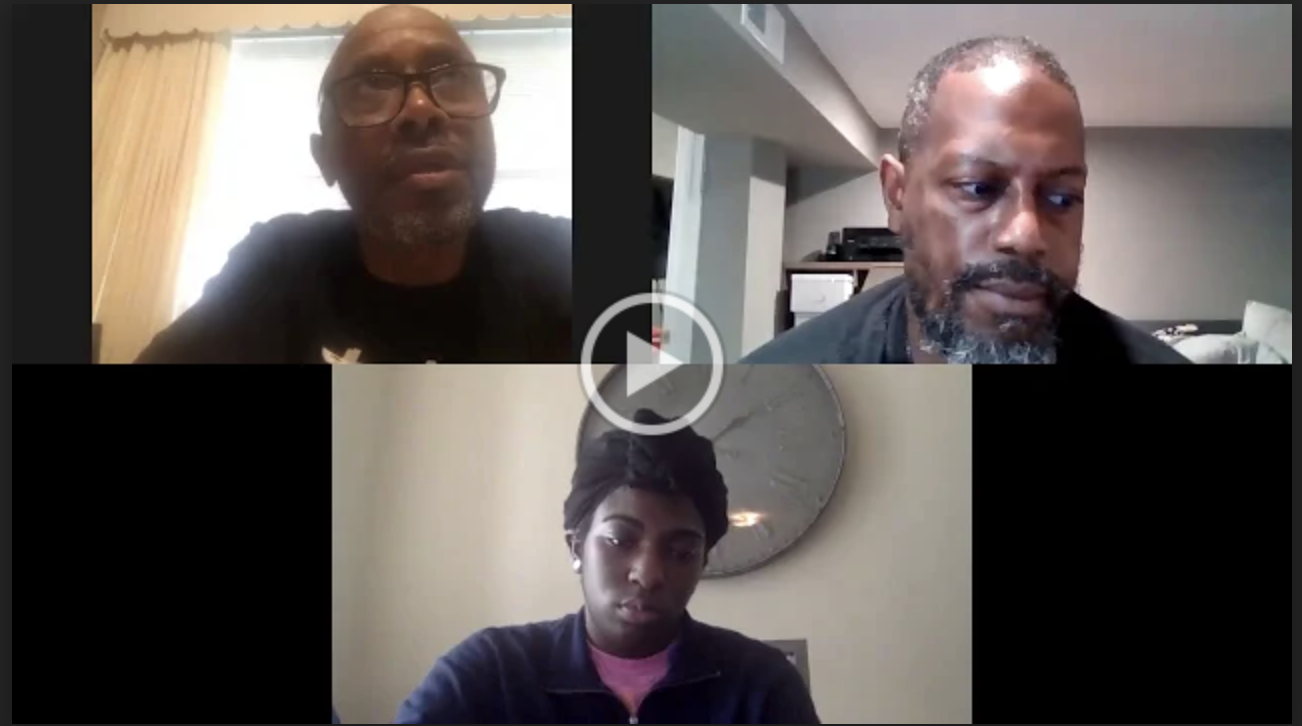
Muslim Community Cultural Center - Interview 1
The Muslim Community Cultural Center of Baltimore (MCCCB) was established in 1990 at 3401 West North Avenue in Leakin Park, it is associated with the original Muslim Community that began in Baltimore in 1947. Their mission is to provide spiritual, cultural, educational and social resources to the Greater Baltimore Metropolitan Area and establish a vibrant community in the Greater Walbrook Neighborhood. The CSRC grant will help support repairs to the MCCB building in order to maintain their social service programs during the pandemic. -
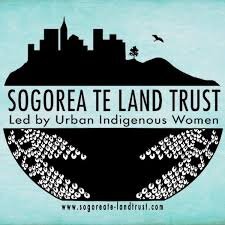
Sogerea Te Land Trust - Interview 1
The Sogorea Te’ Land Trust is an urban Indigenous women-led land trust based in the San Francisco Bay Area that returns Indigenous land to Indigenous people. It was founded in 2012 with the goals of returning traditionally Chochenyo and Karkin lands in the San Francisco Bay Area to Indigenous stewardship and cultivating more active, reciprocal relationships with the land. Through the practices of rematriation, cultural revitalization, and land restoration, Sogorea Te’ calls on native and non-native peoples to heal and transform the legacies of colonization, genocide, and patriarchy and to do the work our ancestors and future generations are calling us to do. The CSRC grant will be used to expand food production and distribution for members of urban Indigenous communities who have been affected by COVID-19. -
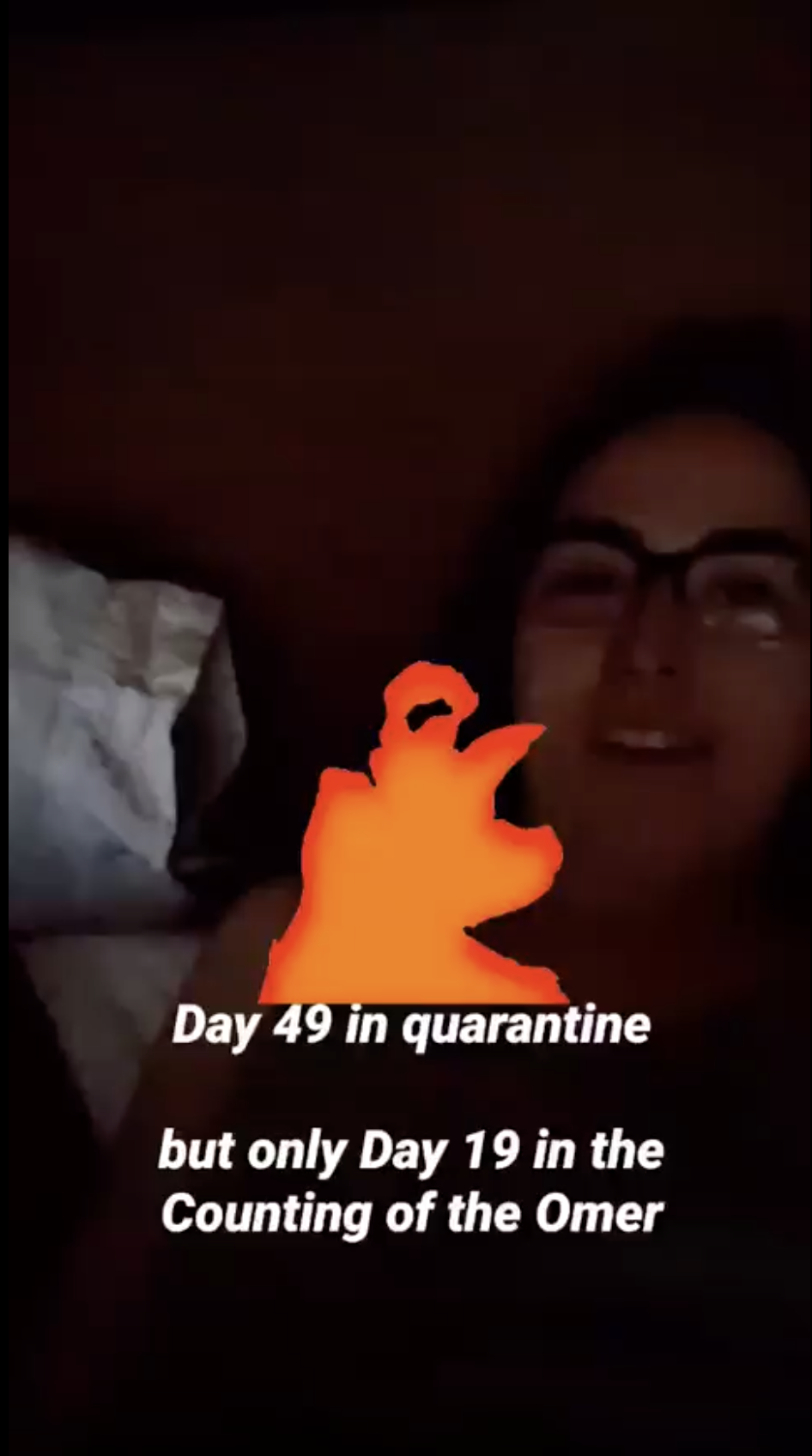
Counting of the Omer
Early in the pandemic, we thought it was funny to count the Omer versus the days we had been in quarantine, but that no longer became funny as the "two-week quarantine" dragged on indefinitely. -
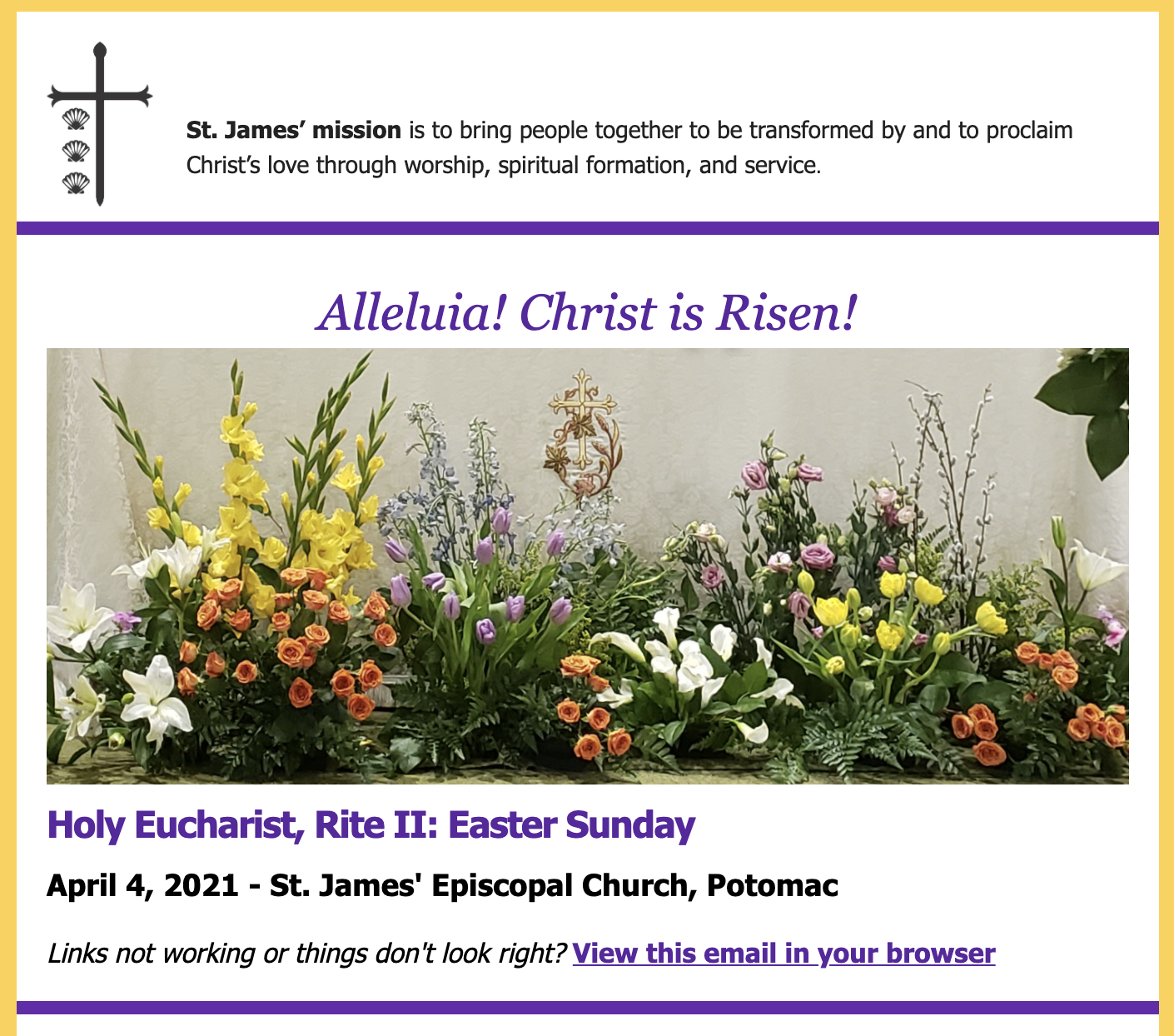
Rector's Reflections on Easter from St. James Episcopal Church
Message from Rev. Meredith to her congregation on Easter. -
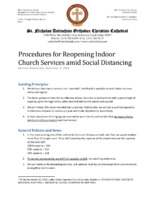
Procedures for Reopening Indoor Church Services amid Social Distancing from St. Nicholas Antiochian Orthodox Christian Cathedral in Los Angeles, California
Revised as of December 2, 2020, these are the guidelines that St. Nicholas Antiochian Orthodox Cathedral is following to help keep their congregation safe. -
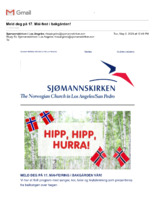
Constitution Day newsletter from Norwegian Church
Constitution Day (Norway's national day) celebration and a drive-in service from Norwegian Seamen's Church in Los Angeles. I'm not Christian, but we go to that church to watch Israel compete in Eurovision every May since 2016, so that's why I get their newsletter. -
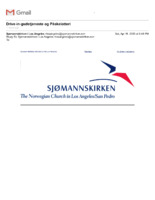
Easter 2020 newsletter from Norwegian Church
Easter drive-in service from Norwegian Seamen's Church in Los Angeles. I'm not Christian, but we go to that church to watch Israel compete in Eurovision every May since 2016, so that's why I get their newsletter. -

Travel to Nowhere: 2020 in Long Beach, California
Our trip to every corner of our apartment in 2020. The song is called "Tira a campà" (Neapolitan dialect for "Tirare a campare") by Enzo Jannacci. -
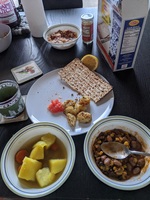
Struggle Seder
We didn't have any fresh vegetables for chazeret so we used dried oregano! Karpas was cilantro. We made haroset from fruits we already had, such as pineapples and cranberries -- not very good! At least we had an unopened box of Osem brand matzah in the pantry left over from Passover 2019 (doesn't sound kosher, I know). My husband is Yemenite and at the very least we had delicious food in the form of Yemenite soup and kitniyot (Mexican beans and corn). -
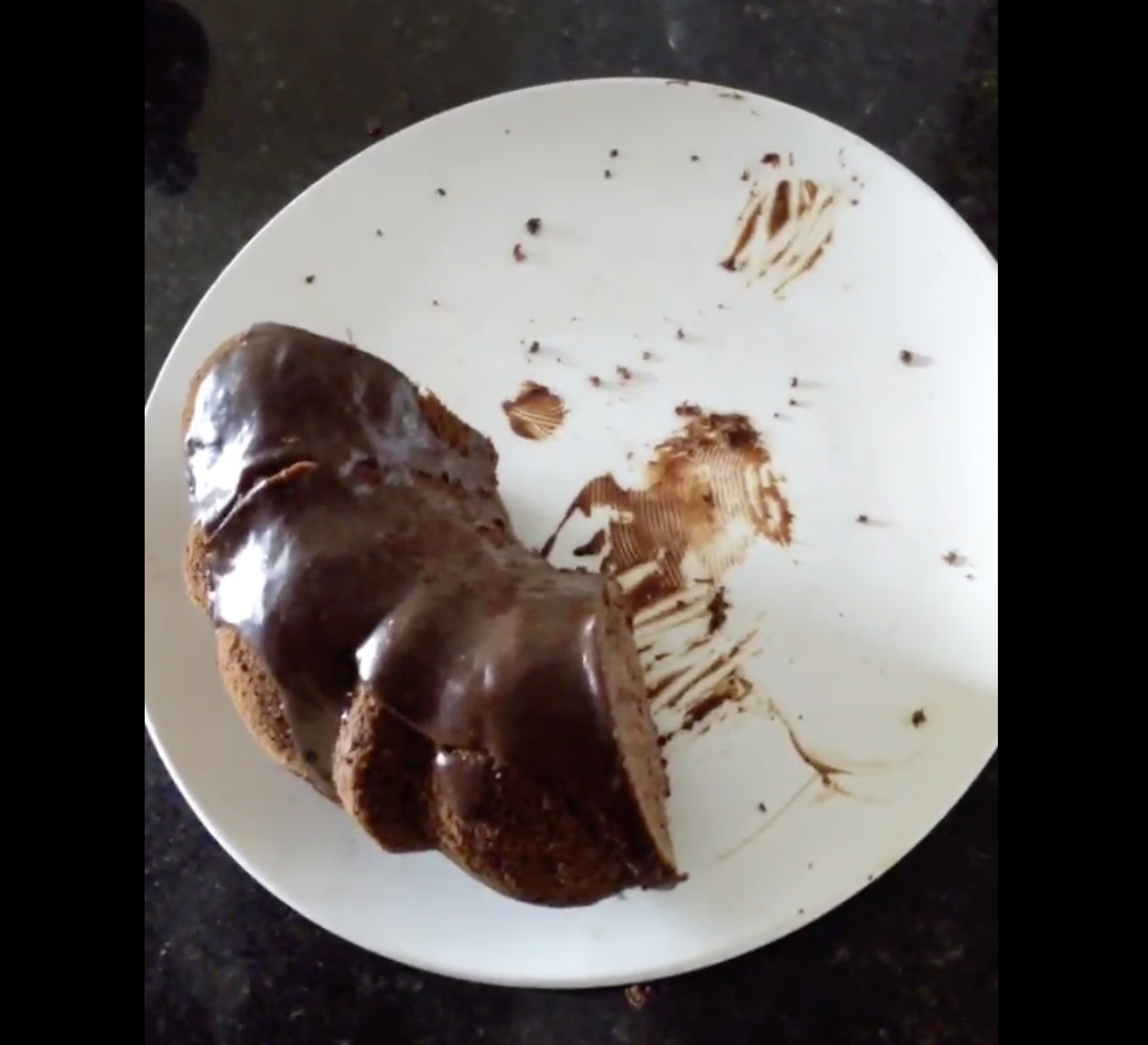
Aftermath of the Chametz Struggle
On the afternoon of Nissan 14, 5780 or April 8, 2020, a rabbi contracted through Chabad.org sold the rights to our chametz to a gentile for the duration of the Passover holiday. The chametz was still physically present in our home and the temptation proved too great for my husband, who was eating the gentile's cake within hours of the transaction. -
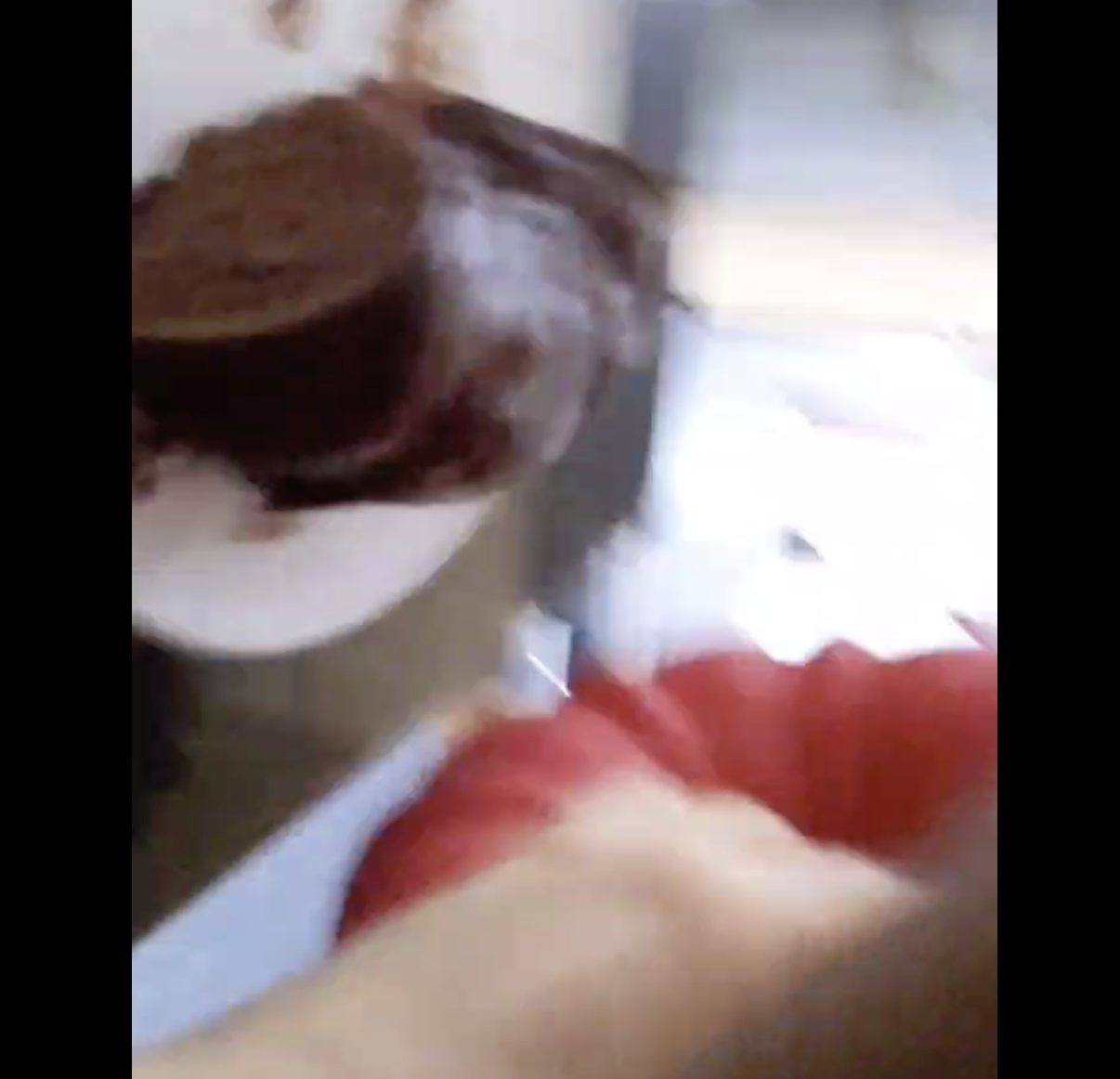
Chametz Struggle
On the afternoon of Nissan 14, 5780 or April 8, 2020, a rabbi contracted through Chabad.org sold the rights to our chametz to a gentile for the duration of the Passover holiday. The chametz was still physically present in our home and the temptation proved too great for my husband, who was eating the gentile's cake within hours of the transaction. -
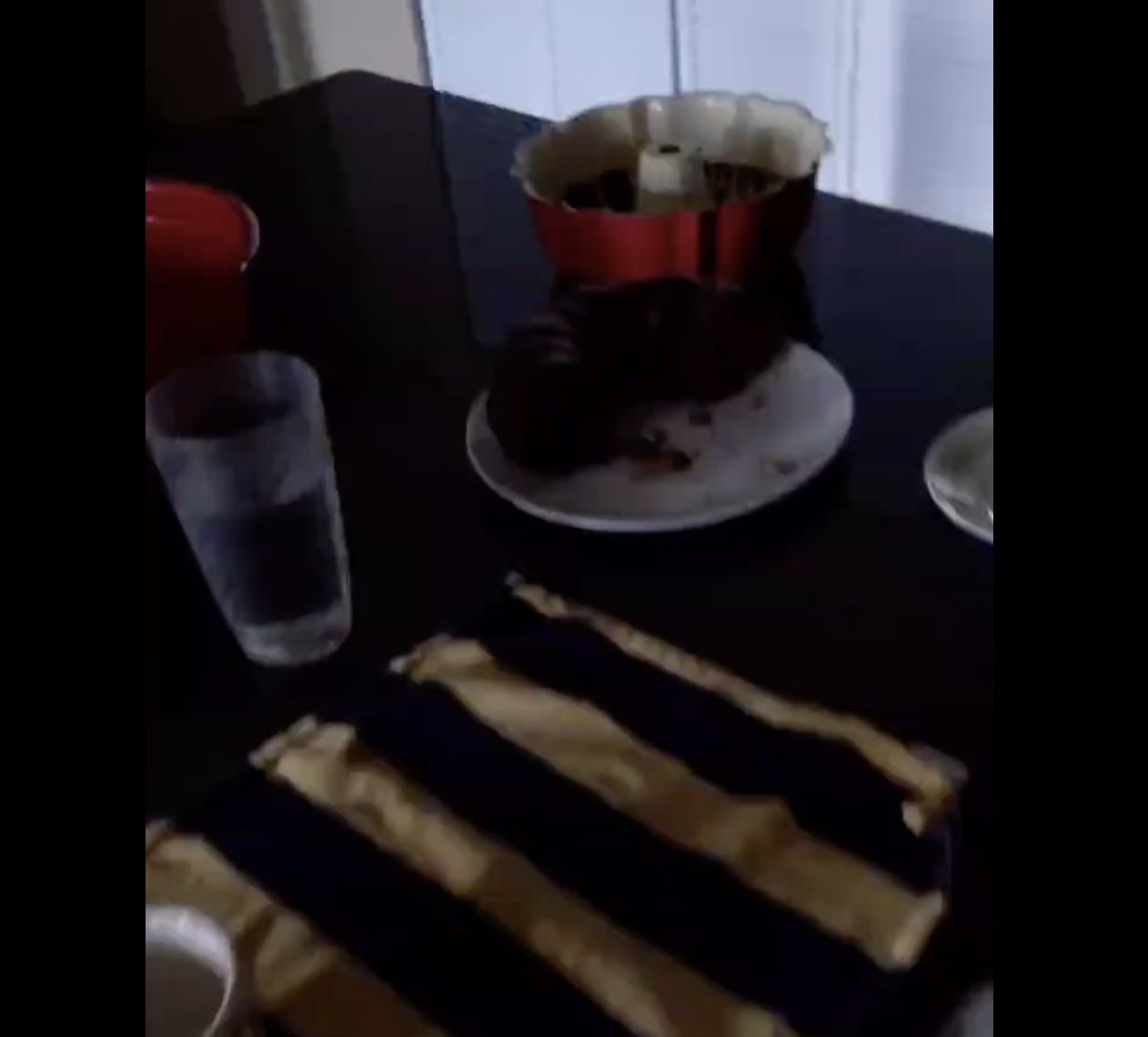
Caught in the Act
On the afternoon of Nissan 14, 5780 or April 8, 2020, a rabbi contracted through Chabad.org sold the rights to our chametz to a gentile for the duration of the Passover holiday. The chametz was still physically present in our home and the temptation proved too great for my husband, who was eating the gentile's cake within hours of the transaction. -
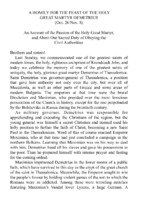
A Homily for the Feast of the Holy Great Martyr Demetrius
A sermon describing Christians sacred duties to obey civil authorities. -

Homemade Orthodox Church Altars
Many members of the congregation of St. Mary Orthodox Church set up their own altars in their home to worship along side the live stream services of the church. -
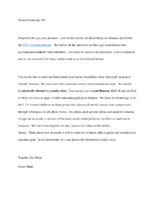
Pastor Mark Email on Physical Distancing
Pastor Mark sent this email to his community explaining how the church must be together socially in these hard times but still follow pandemic restrictions by being Physically apart. -
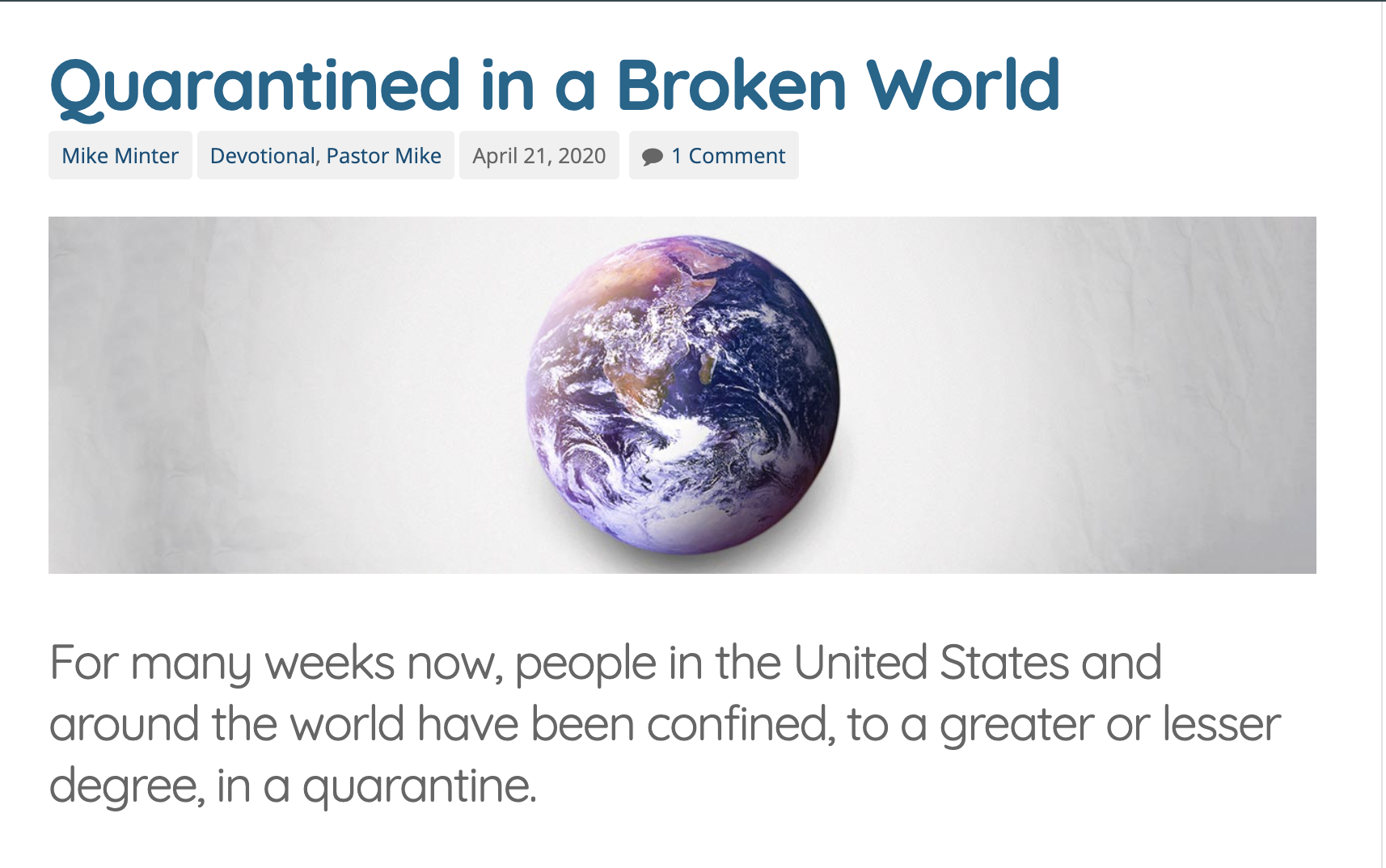
Article: Quarantined in a Broken World
As the pandemic continues to play out, most of us are probably longing for the day when we can return to some sense of normalcy. Yet this is far from the first time the world has experienced something like a quarantine. In fact, the world has almost always been in a quarantine of sorts, starting in the first few pages of the Bible, when Adam and Eve were “quarantined” away from the Garden of Eden. Read More: https://www.restonbible.org/2020/04/21/quarantined-in-a-broken-world/ -
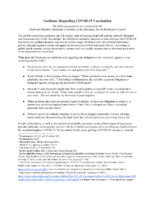
MJRC Guidance Regarding COVID-19 Vaccination
The following guidance was prepared by the Faith and Halakhic Standards Committee of the Messianic Jewish Rabbinical Council. The global coronavirus pandemic has left a tragic (and still-rising) death toll and has radically disrupted our communal way of life. Meanwhile, the worldwide scientific endeavor to find solutions for COVID-19 immunity has yielded numerous vaccines in various stages of clinical trial, two of which have been proven (through rigorous testing and approval processes) to be both safe and effective. According to public health experts, ending the pandemic soonest and most safely requires that a substantial proportion of the population be vaccinated. What does the Torah and our tradition teach regarding the obligation to be vaccinated against a virus spreading pandemically? -
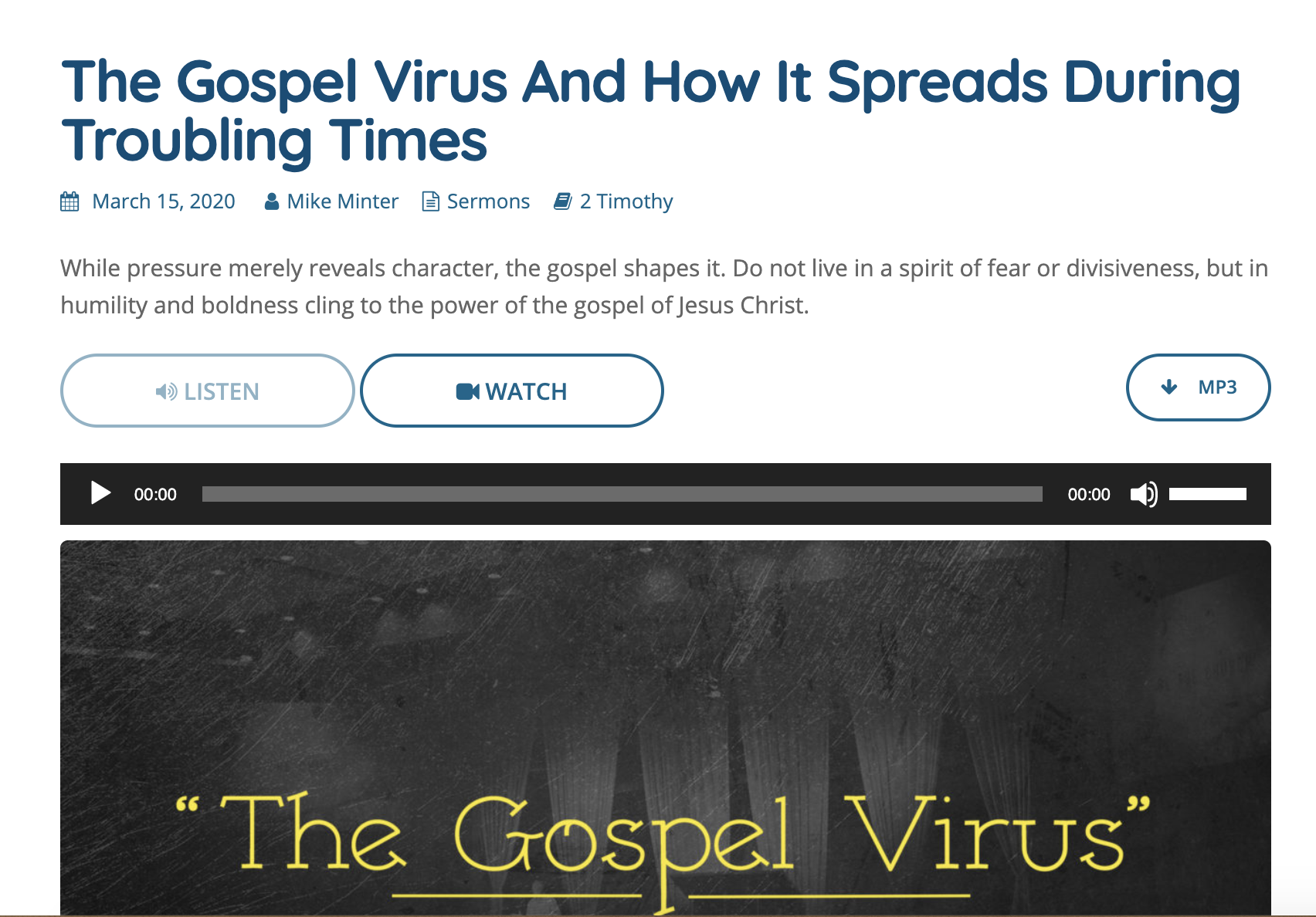
Sermon: The Gospel "Virus" & How It Spreads During Troubling Times
This was the first pre-recorded worship service Reston Bible Church conducted on the first Sunday after everything shut down because of the coronavirus: While pressure merely reveals character, the gospel shapes it. Do not live in a spirit of fear or divisiveness, but in humility and boldness cling to the power of the gospel of Jesus Christ. -
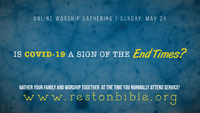
Sermon: Is COVID-19 a Sign of the End Times?
A sermon from May 24, 2020 addressing 'end times' concerns: These are unusual and difficult times. Does that mean Jesus is about to return? Our view of eternity brings comfort to our life of uncertainty. -
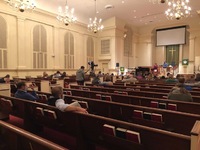
Social Distancing in Church at Third Church Richmond, VA
When the church building opened up for Third Church they had to practice social distancing. This photo demonstrates that. -
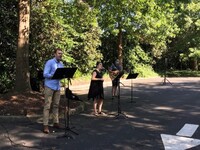
Hymns and songs being sung out doors at Third Church in the COVID-19 Pandemic
Multiple photos showing how Third Church has started moving the musical part of their worship out doors. -
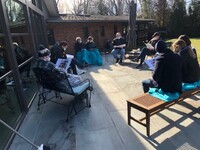
Out Door Scripture Study and Sermons at Third Church
Scripture Study and sermons being held outdoors in the COVID-19 Pandemic. -
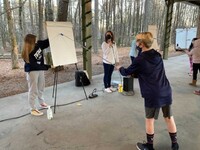
Out Door Activities at Third Church
Members of Third Church in Richmond, VA doing out door activities while social distancing. -
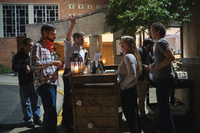
Social Hours Outdoors
We started holding our weekly social hour outdoors, where young adults could come and have fellowship over some drinks! -

Filming Weekly Talks for Spiritual Nourishment
When people weren't coming in-person to church, we had our seminaries prepare talks for spiritual nourishment. We filmed them and published them weekly.